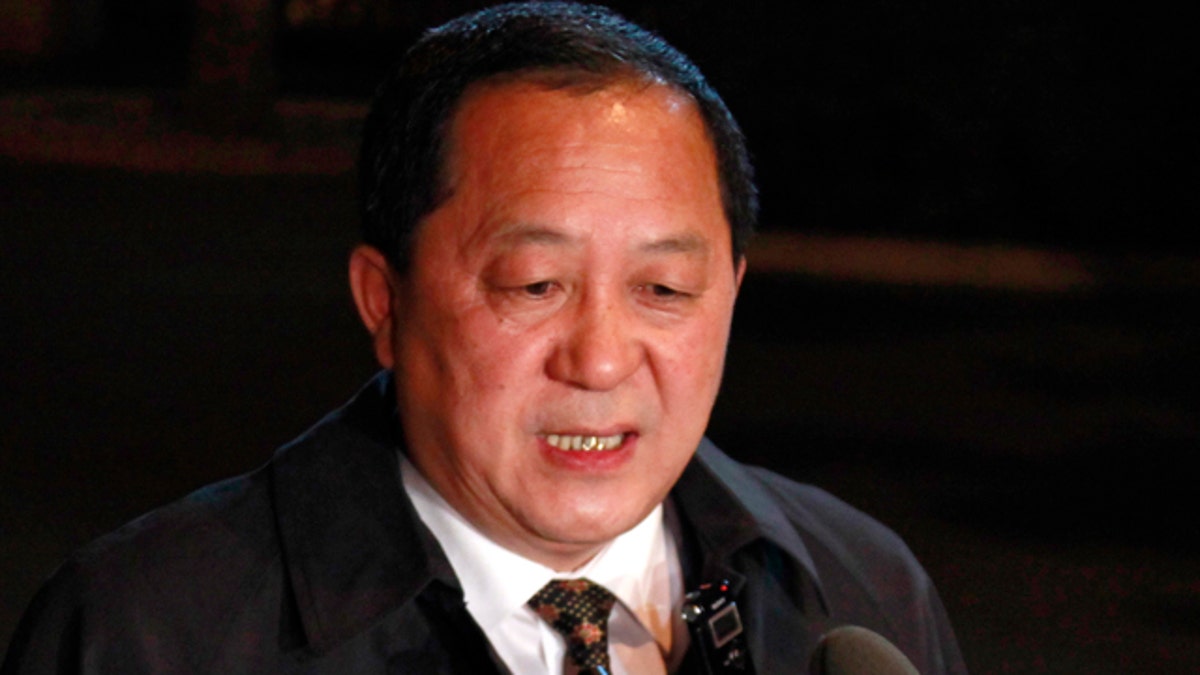
March 19, 2012: Ri Yong Ho, a vice minister of North Korea's Ministry of Foreignffairs, speaks to journalists gathered outside the Diaoyutai state guest house in Beijing. (AP)
BEIJING – Despite China's concerns, a senior North Korean nuclear negotiator reiterated his government's position on a planned long-range rocket launch after holding talks Monday with his counterpart in Beijing.
Ri Yong Ho said the launch of the satellite is separate from recent talks with the United States and North Korea over food aid. The United States promised the aid in exchange for a suspension of North Korea's nuclear programs and has warned that the launch could jeopardize that agreement.
"The launching of the satellite is part to our right to develop space programs," Ri said outside a government guesthouse in Beijing. He warned that the North would respond to any threats on its sovereignty.
"Regarding the peaceful purpose of the satellite launching, if others are practicing double standards or inappropriately interfere with our sovereign rights, we will be forced to react to it. But we will try our best for these things not to happen," he said.
The U.S., Japan, Britain and others have urged North Korea to cancel the planned launch, calling it a threat to diplomatic efforts and warning that it would violate a U.N. ban on nuclear and missile activity because the same rocket technology can be used for long-range missiles.
South Korea's presidential office called the launch a provocation that was aimed at developing a long-distance method to deliver nuclear weapons, Yonhap news agency reported.
China, North Korea's main political and economic ally, expressed rare concern Saturday about the planned launch and called on all parties to exercise restraint. Ri said he met with his Chinese counterpart Wu Dawei in Beijing but did not give details about their talks.
North Korea said Friday that it would fire an observation satellite into space on a new rocket as part of celebrations next month of the 100th anniversary of late President Kim Il Sung's birth.
Ri said Pyongyang was sending invitations to inspectors from the International Atomic Energy Agency as part of implementing the agreement with the United States reached in February.
The agreement was seen at the time as a promising step toward better relations between them and progress toward restarting six-nation talks on North Korean nuclear disarmanent.







































